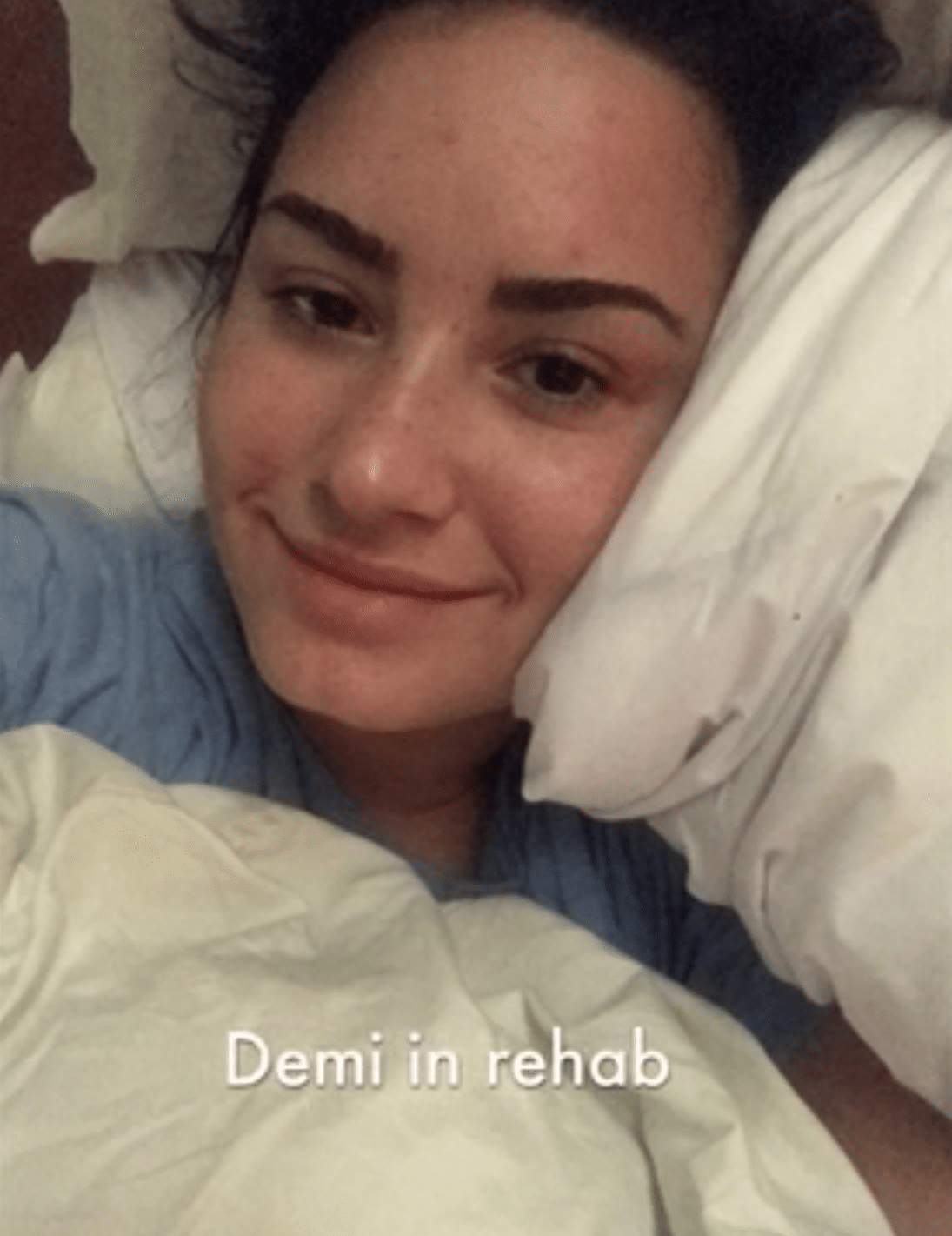Demi Lovato went back to her rapists to ‘try to take power back’: ‘It didn’t fix anything’

Lovato was questioned by a reporter after her rape, who questioned “how much heartbreak” a 15-year-old could possibly have suffered (YouTube/ Demi Lovato)
In the most recent episode of her YouTube docuseries Dancing with the Devil, titled “Reclaiming Power”, singer Demi Lovato has explained that she pursued contact with her sexual abusers in an attempt to deal with the trauma their actions had caused, but that the attempts just made her feel worse.
In the previous episode, she had revealed that she lost her virginity to rape as a 15-year-old Disney star, and also that she was sexually assaulted on the night of her near-fatal drug overdose which caused her to have three strokes and a heart attack.
Now, Demi Lovato has gone into more detail about the impact that sexual trauma had on her, particularly the breach of trust she experienced when the first attack was swept under the carpet.
“My MeToo story is me telling somebody that someone did this to me and they never got in trouble for it,” she said. “They never got taken out of the movie they were in. But I’ve just kept it quiet…so, there’s the tea.”
She says that, like many survivors, she internalised the rape and told herself that it was her fault, adding that her “Christian” public persona (she was part of the Disney crowd that publicly stated they were going to wait until marriage to have sex) also contributed to her internal conflict.
“[I] had a promise ring,” she explained. “So what, I’m supposed to come out to the public…six months later I’m supposed to say ‘well actually I had sex’, even though it was rape, some people are going to see it that way. Or at least, the Christian Southern girl inside of me didn’t see it that way because sex was not normalised as a child, or in the south.”
She said that after the incident, her bulimia “got so bad that I started throwing up blood for the first time”.
I wanted to rewrite his choice of violating me.
Demi Lovato was also candid about the fact she went back to heroin after her near-fatal overdose, and that was – in part – a response to sexual trauma, and involved the man who had assaulted her.
“I wish I could say that the last night I ever touched heroin was the night of my overdose but it wasn’t,” she said. “I had just done a week long intensive trauma retreat.
“The night that I came back from that retreat I called him. I wanted to rewrite his choice of violating me, I wanted it now to be my choice and he also had something that I wanted which were drugs.
“And I ended up getting high. I thought how did I pick up the same drugs that put me in the hospital? I was mortified at my decisions.”

A still from the latest episode of the series (YouTube/Demi Lovato)
Demi Lovato went on to say: “I called him back and I said: ‘No I’m gonna f**k you.’
“It didn’t fix anything, it didn’t take anything away, it just made me feel worse, but that for some reason was my way of taking the power back. All it did was bring me back to my knees of begging to God for help.”
Her rehab therapist makes regular appearances in the docuseries, and in response to this he said: “How do we help you create a life where to have a sense of autonomy does not mean putting yourself in these harmful situations? That being able to abuse your abuser is not where the healing is going to come from.”
“A lot of survivors stay in touch with their perpetrators in some way,” Laura Palumbo, communications director of the National Sexual Violence Resource Center, told USA Today.
x”That may include trying to pursue a relationship with them that’s romantic or is sexual. … In some ways, attempting to reconnect can be a way for them to process their own disbelief and dissonance about what happened to them.”
You can watch the episode on YouTube here.
Rape Crisis England and Wales works towards the elimination of sexual violence. If you’ve been affected by the issues raised in this story, you can access more information on their website or by calling the National Rape Crisis Helpline on 0808 802 9999. Rape Crisis Scotland’s helpline number is 08088 01 03 02.
Readers in the US are encouraged to contact RAINN, or the National Sexual Assault Hotline on 800-656-4673.

